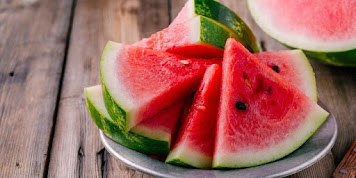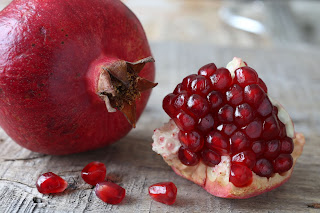If you are searching for nutritious fruits that are good for your skin health, you just came to the correct page!
Eating fruits as part of your daily healthy diet can help renew, rejuvenate and nourish your skin internally and externally.
In this blog, we’ll go through a type of fruit and find out what nutrients they include that give lustrous effects on your skin!
Why are Fruits Healthy?
It is always a great option to eat more fruits as part of your routine, reliable, healthy diet. They include natural solid sources of vitamins, minerals, and antioxidants. Those are essential for your overall health and the resources of your body.
Fruits are the delicious and plump edible part of a plant. They come in extensive kinds of colors, shapes, textures, and most of them include seeds.
Further, fruits are usually consumed raw or fresh; however, some varieties are also used for culinary purposes.
Depending on sex, age, and physical activity level, the USDA MyPlate suggests including 1 to 2 cups of fruit per day as part of a healthy diet.
So, how can fruits enhance your health?
· Fruits will help decrease your calorie consumption as their plump quality can make you feel complete and fulfilled without feeling bloated.
· Eating fruits enhance your Vitamin C, folate, fiber, and potassium consumption. These are the vital nutrients that most people around the world do not get sufficient of in their diet.
· Including fruits as part of your meals lessens your risk of acquiring lifestyle diseases such as cancer, diabetes mellitus, and heart diseases.
· The nutrients seen in fruits can give you clear and lustrous skin by rebalancing your hormone levels and fighting acne or other skin conditions.
Knowing that fruits contain abundant sources of vitamins and minerals, they are nature’s gifts that we can just take for a fast snack. They have a good crunch and delicious bursts of juiciness in every bite.
Also, you get to enjoy fruits any time of the day – breakfast, lunch, dinner, or snack time.
Nutrients Found in Fruits
You may have your outer solutions, such as lotions and creams, to help tone, smoothen, and firm the surface of the skin, but wistfully, they are not enough.
If you are searching for the answer to maintaining your skin health, consuming fruits as part of a healthy diet is the key!
Treat yourself with great nutrition for healthy, radiant skin with these vital nutrients that you can get from fruits!
Vitamin B
Fruits are your natural source of vitamin B-complex that promotes healthy cells and counters infections.
B vitamins such as niacin (B3), pantothenic acid (B5), pyridoxine (B6), biotin (B7), folic acid (B9), and cobalamin (B12) promote cellular metabolism and help your body restore healthy skin cells.
Researchers have noticed that vitamins B3, B5, and B9 show assuring effects on healing acne skin inflammation and improving signs of aging.
Vitamin B deficiencies involve dermatological symptoms such as seborrhoea, itchy red rash, or fungal skin infections.
Healthy Fats
You might find it uncanny to relate fats and fruits, but yes, some fruits carry a great source of healthy fat called monounsaturated fatty acids.
Getting a sufficient intake of monounsaturated fatty acids can lessen oxidative stress and may have the potential to defend your skin from photoaging.
Fruits like coconuts, avocados, and olives possess monounsaturated fats that can help lower your Low-density Lipoprotein (LDL) or poor cholesterol levels. While boosting your High-Density Lipoprotein (HDL) or good cholesterol levels, reducing your risk from heart diseases.
Vitamin A
Vitamin A promotes the health of your skin’s epidermis and dermis.
This vitamin comes in two forms: carotenoids (provitamin A) and retinol (preformed vitamin A). It supports the stimulation of new skin’s cell production, supports immunity, and provides a natural moisturizing effect to help keep your skin hydrated.
Vitamin A is also an antioxidant that can fight free radicals and slow down aging.
If someone is vitamin A deficient, production of keratin may occur in the skin’s hair follicle, and it can lead to a bumpy rash-like condition called follicular hyperkeratosis or keratosis pilaris (KP).
Vitamin E
Vitamin E, also known as tocopherol, is known to efficiently treat eczema and treat wounds, together with vitamin C and zinc.
This vitamin is also an antioxidant that can fight against oxidative stress and slow down skin aging.
Selenium
Selenium is a mineral that is only needed in minimum amounts. Research has discovered that it can help fight cancer and inflammation, and it includes antioxidants that can protect your skin from harmful UV rays.
Zinc
For your skin health zinc, a mineral is required for immune cell function and wound healing.
Research supports that zinc aids in the body’s immune and neuropsychiatric functions guards your skin against harsh UV radiation, and decreases your risk of getting heart disease and cancer.
Fruits for Skin Health
Look for fruits that include compact amounts of nutrients and antioxidants to nourish your skin from the inside out.
Let’s see what nutrients these fruits contain that your skin will help from.
Avocado
Avocados are more solid sources of monounsaturated fatty acids. Which can significantly reduce total cholesterol and LDL cholesterol levels and boost HDL cholesterol levels.
It also contains ample amounts of vitamins that are excellent for your skin health.
For every piece of avocado fruit (201g), it can cover 56% of your daily need for vitamin B5, 41% for vitamin B9, 30% for vitamin B6, 22% for vitamin B3 and vitamin C, 11% for vitamin B1, and 2% for vitamin A.
To enjoy your food with avocados, you can add them to your salad, breakfast bowls, or sandwiches.
Or, you can mix it with spinach for a cool and healthy green smoothie.
Guava fruit
If you are searching for vitamin C-rich fruit other than orange, guava is the answer! Guava is recognized to have immense vitamin C!
Oval in shape, green or yellow, this hard or soft tropical fruit consists of an off-white to deep pink flesh that tastes sweet or sour. You can even eat the small seeds in the central pulp if they’re not hard.
For every 100g of raw guava fruit, it can cover 254% of your everyday need for vitamin C, 3 to 12% for vitamin B-complex, 3% for vitamin A, 2% for zinc, and 1% for selenium.
Yes, guava can give you about four times extra ascorbic acid or vitamin C than oranges!
Kiwi fruit
Here’s another vitamin-C-rich fruit that is greater than oranges!
Kiwi is a delicious and slightly acidic oval-shaped fuzzy-looking brownish-green fruit known as the Chinese gooseberry of the Actinidiaceae family.
Kiwifruit has a green and juicy firm flesh that comes with edible purple-black seeds in the center.
For every 100g of kiwifruit, it can provide 103% of your everyday need for vitamin C. 10% for vitamin E, and 2% to 6% for vitamin B-complex.
Watermelon
To keep your skin healthy, you also need to keep it hydrated all the time.
And watermelons can provide you with that additional hydration your skin needs!
People would always look forward to the hot days so they could munch on this juicy, sweet, and fleshy fruity treat. Watermelons are always the favorite of the summer season.
They may look big, but they’re light for your tummy.
Containing 92% of the water, the watermelon’s high water content can help to flush out body toxins and enhance your bowel movement.
A 200g serving of raw watermelon can cover 60% of your everyday need for vitamin C, 21% for vitamin A, 5% to 29% for vitamin B-complex, 2% for vitamin E, 6% for zinc, and 5% for selenium.
For a light and healthy snack, have a bowl of watermelon. You can also add to your fruit salad or add to your smoothies for a twist.
Lemon
Lemons contain impressive amounts of antioxidants that help scavenge free radicals and guard your skin against dark spots and photodamage.
Make lemon a part of your diet too! You can make lemonade juice or mix it in your favorite fresh salad.
For every piece of lemon fruit (84g), it can cover 49% of your everyday need for vitamin C, 2% to 4% for vitamin B-complex, 1% for vitamin E, and 1% for selenium.
Beauty gurus would also recommend mixing lemon juice with rose water as a facial cleanser.
Some people would mix lemon juice with milk for dry skin to help get rid of dark circles.
Papaya
Call it pawpaw, papaw, or just papaya, this delicious fleshy and musky tang-tasting fruit is commonly served for breakfast, while the unripe ones are cooking in soupy cuisines.
Papayas are excellent for your skin!
With just one small fruit of ripe papaya (157g), it can cover 98% of your everyday need for vitamin C, 8% for vitamin A, and 3% for vitamin E.
Aside from these nutrients, papayas have papain and chymopapain, enzymes that can probably fight oxidative stress that can cause skin damage.
Strawberries
Smothered with tiny achenes on its skin, bright red with a soft fleshy and sweet pulp, you can find this fruit usually used in jams, pies, cakes, and other desserts.
For every cup of sliced raw strawberries (166g), it can give you 108% of your everyday need for vitamin C, 3% for vitamin E, and 2% for zinc.
Mango
For skin rejuvenation, this delicious and fleshy fruit will do the work for you!
For every piece of mango fruit (336g) without waste, it provides 136% of your everyday need for vitamin C, 20% for vitamins A and E, 8% to 36% for vitamin B-complex, 4% for selenium, and 3% for zinc.
Mangoes are usually added to smoothies, breakfast bowls, or fruit salad.
Some mash the mango flesh for topical use. After applying it to your skin, rinse off after 10 minutes as part of a skin rejuvenation routine.
Oranges
From skin to pulp, everything about this round and aromatic fruit screams orange!
Referring to the same family as lemons, oranges can also produce beneficial effects on your skin.
For every piece of an orange fruit (184g), it can provide 109% of your everyday need for vitamin C, 3% to 14% for vitamin B-complex, 2% for vitamins A and E, 2% for selenium, and 1% for zinc.
Aside from eating it raw, you can squeeze it to make a nice pulpy orange juice, or you can add them to recipes like salads, stews, pizza, cake, smoothies, and more.
Topically, you can apply it on your skin if you have pigmentation and wash it off after a few minutes.
Pineapples
Pineapples are known as the queen of fruits. This exotic fruit is known for its sweet, juicy, and tangy taste.
For every cup of pineapple chunks (165g), it can cover 88% of your everyday need for vitamin C, 1% for vitamin A, 7% to 11% for vitamin B-complex, and 2% for zinc.
Besides that, pineapples contain bromelain, an enzyme that can probably deal with inflammation, prevent cancer, and improve wound healing.
Make pineapples as part of your breakfast, or eat some slices as a snack or dessert.
Banana
Interestingly, studies discovered that bananas contain anticarcinogenic and antimicrobial properties, making them suitable for your skin.
For every cup of sliced bananas (150g), it can cover 14% of your need for vitamin C, 6% to 32% for vitamins B-complex, 1% for vitamins A and E, 3% for selenium, and 2% for zinc.
To get lustrous skin by eating bananas, you can add them to your breakfast bowl or make a smoothie with it. Furthermore, you can use it to make banana muffins too.
Apple
Apples are famous fruits around the world. They are known for their effective antioxidative properties that discharge harmful free radicals in the body.
For every large-sized apple (223g), it can provide 11% of your everyday need for vitamin C. 3% for vitamin E, 3% to 5% for vitamin B-complex, 1% for vitamin A, and 1% for zinc.
Apricot
Apricots are also known as Armenian plums, as it tastes as tarty as purple plums. This stone fruit is a shorter variant of peach fruit with a round shape and yellow color.
For every cup of sliced apricots (165g), it can cover 18% of your everyday need for vitamins A and C, 10% of vitamin E, 4% to 5% for vitamin B-complex, and 3% for selenium.
Apricots contain tremendous amounts of antioxidants. People would also usually use it as an exfoliating face scrub to help poor skin tone.
Pomegranate
Pomegranates are one of the fruits that have persisted since ancient periods, and it is a cosmetic element to promote skin health.
An in vivo study supports that pomegranate juice concentrated powder (PCP) can defend your skin from UV rays and possesses moisturizing, anti-inflammatory, and antioxidative properties.
For every cup of pomegranate fruit (174g), it can provide 20% of your everyday need for vitamin C. 7% for vitamin E, 3 to 17% for vitamin B-complex, 6% for zinc, and 2% for selenium.
Cherries
Cherries are known for their great antioxidants that help stop oxidative stress and slow down the skin aging process.
For every cup of cherries without pit (154g), it can cover 12% of your everyday need for vitamin C, 1% for vitamins A and E, 1% to 6% for vitamin B-complex, and 1% for zinc.
Concluding Thought
For healthy and glowing beautiful skin, see that you are receiving sufficient amounts of healthy fats, vitamins C, B-complex, A, E, minerals, and antioxidants.
As stated above, these healthy fruits will provide you with ample amounts of these essential nutrients for your skin health.

























Comments
Post a Comment